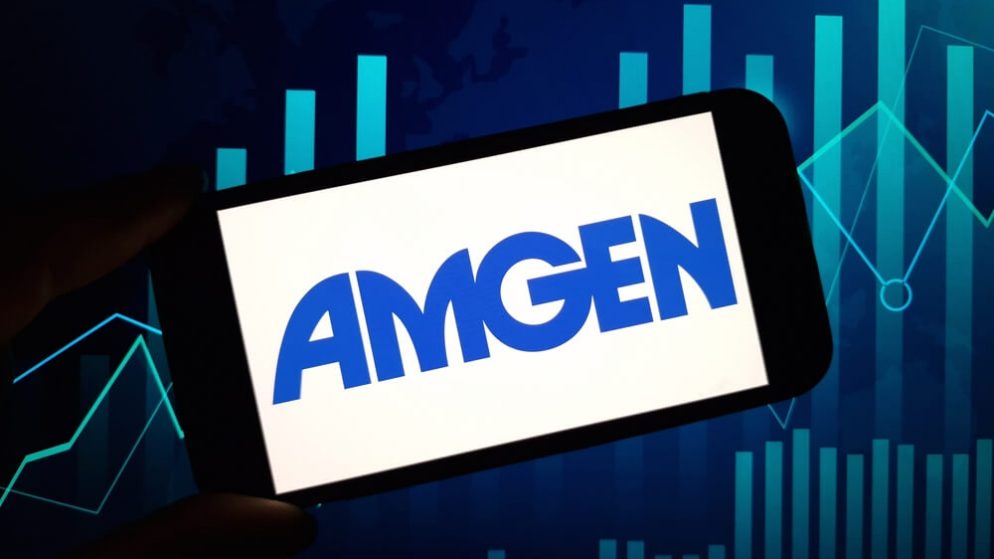



Get new exclusive access to healthcare business reports & breaking news




Amgen announced May 2nd financial results for the first quarter 2024, and its shares soared right after the announcement, which was followed closely by a FDA approval of a lung-cancer drug.
“With many of our innovative products delivering strong growth and promising new medicines advancing through our pipeline, we are excited about delivering attractive long-term growth,” said Robert A. Bradway, chairman and chief executive officer, when announcing how the company has fared during the first quarter.
Key results include:
Following that announcement, Amgen shares soared on May 3rd. Amgen’s market capitalization swelled $20 billion, a surge that reflects intense investor interest in emerging weight loss medicines.
For the full year 2024, the Company now expects:
The biotech’s lead drug, called maridebart cafraglutide or MariTide, could be competition for the products of Eli Lilly and Novo Nordisk and their similar weight loss oriented treatments. But Amgen’s drug is likely at least two years away from regulators’ desks, by which time Eli Lilly and Novo Nordisk may already have successors to their weight loss medicines Wegovy and Zepbound. MariTide acts on the same targets that Zepbound does, hormones called GLP-1 and GIP. But unlike Zepbound, MariTide blocks, rather than stimulates, GIP. Amgen also aims to show the drug can effectively cut weight with a once-monthly shot, instead of the weekly injections required for Zepbound and Wegovy.
Currently, the situation of the Amgen drug is as follows:
– A Phase 2 study of MariTide, a multispecific molecule that inhibits the gastric inhibitory polypeptide receptor (GIPR) and activates the glucagon like peptide 1 (GLP-1) receptor, in adults with overweight or obesity with or without type 2 diabetes mellitus is ongoing, with topline data anticipated in late 2024.
There’s little known publicly however about the drug’s potential.
Meanwhile, Amgen has some other good news both for its shareholders and the general public.. The company announced May 16th that the U.S. Food and Drug Administration (FDA) has approved IMDELLTRA™ (tarlatamab-dlle) for the treatment of adult patients with extensive-stage small cell lung cancer (ES-SCLC) with disease progression on or after platinum-based chemotherapy. IMDELLTRA has received accelerated approval based on the encouraging response rate and duration of response (DoR) observed in clinical studies. Continued approval for this indication may be contingent upon verification and description of clinical benefit in a confirmatory trial(s).
“The FDA’s approval of IMDELLTRA marks a pivotal moment for patients battling ES-SCLC. This DLL3-targeting therapy in ES-SCLC comprises a transformative option demonstrating long-lasting responses in pretreated patients,” said Jay Bradner, M.D., executive vice president, Research and Development, and chief scientific officer at Amgen. “This approval further demonstrates our commitment to addressing aggressive cancers through our second FDA-approved Bispecific T-cell Engager (BiTE®) molecule. IMDELLTRA offers these patients who are in urgent need of new innovative therapies hope, and we’re proud to deliver this long-awaited effective treatment to them.”
“Lung cancer is a complex and devastating disease, and less than 3% of patients with ES-SCLC live longer than five years,” said David P. Carbone, M.D., Ph.D., professor of internal medicine and director of the James Thoracic Oncology Center at the Ohio State University Medical Center.1 “In the DeLLphi-301 trial, the median overall survival was 14.3 months, with 40% of patients responding to treatment with tarlatamab. These responses were remarkably durable, representing a major advancement in the SCLC treatment paradigm.”
“After decades of minimal advancements in the SCLC treatment landscape, there is now an effective and innovative treatment option available,” said Laurie Fenton Ambrose, co-founder, president, and CEO of GO2 for Lung Cancer. “Today’s FDA approval marks a significant milestone for the SCLC community as the availability of a targeted bispecific therapy brings forward new possibilities to those living with this aggressive disease.”